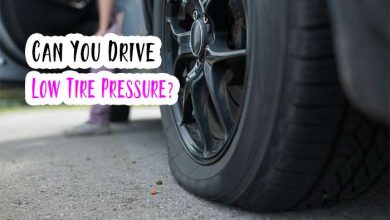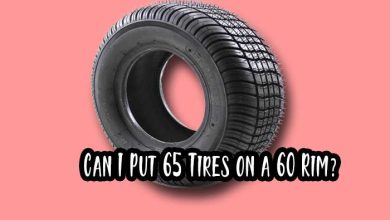ABS Light ON! Is This for Low Tire Pressure?
Hello, fellow road explorers! Have you ever been cruising down the highway only to have your ABS light suddenly steal the spotlight on your dashboard?
As a tire enthusiast with a deep understanding of the intricacies of tires and rims, I know this isn’t the kind of surprise you’re hoping for.
Today, let’s unravel the mystery behind a common concern: Can low tire pressure be the sneaky culprit behind the unexpected glow of the ABS light? Read my recent post- ABS and Traction Control Light On After Tire Change.
Low tire pressure can sometimes cause the ABS light to come on. This is because the ABS system relies on sensors to monitor the wheel speed of each tire.
Understanding the ABS System
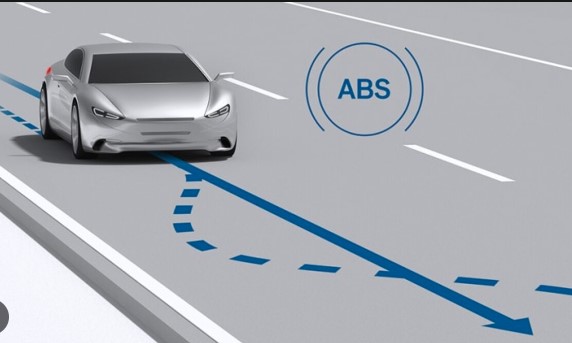
Before we plunge into the tire pressure saga, let’s take a moment to appreciate the technological marvel of the ABS (Anti-lock Braking System).
Imagine it as the superhero of braking, ensuring your wheels maintain traction during hard stops, providing you with optimal control over your vehicle. It’s like having a personal guardian angel for your brakes.
The Role of Tire Pressure in Vehicle Safety
Now, let’s shift our focus to the unsung heroes of road safety – your tires. Envision them as the foundation of your vehicle’s performance.
The pressure within these rubber marvels plays a pivotal role in your car’s overall functionality, including the effectiveness of the ABS. Here’s a more detailed look:
- Proper Grip: Adequate tire pressure translates to maximum contact between the tire and the road, enhancing grip – a critical factor for the ABS to work seamlessly.
- Balanced Braking: Optimal tire pressure maintains a balance between all four tires, promoting uniform braking and preventing erratic ABS behavior.
- Sensor Functionality: ABS relies on sensors to detect wheel speed. Correct tire pressure ensures these sensors can do their job with precision, providing accurate data for the ABS system.
What the ABS Light Signifies
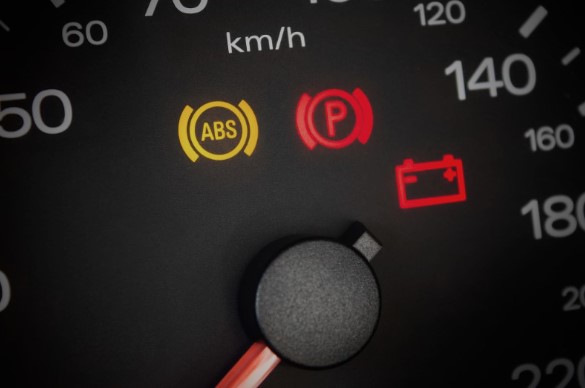
Now, let’s address the elephant in the room – the ABS light. Consider it your car’s subtle way of saying, “Hold on, something’s amiss!”
When this unassuming light illuminates, it’s signaling that your ABS system is experiencing a hiccup. Let’s break it down even further:
- Warning Signal: The ABS light is a preemptive warning that your anti-lock braking system is facing an issue and may not perform optimally.
- Diagnostic Clues: The specific light pattern (steady, blinking, or flashing) can provide diagnostic clues, giving insights into the nature of the problem.
Read More: Are Off Road Tires Good for Snow?
Causes of ABS Light Activation
Now, let’s dive deeper into the potential triggers behind your ABS light going into panic mode. Here’s a comprehensive breakdown:
- Faulty Sensors: Over time, ABS sensors, responsible for monitoring wheel speed, can wear out, leading to inaccurate readings and potential ABS light activation.
- Electrical Glitches: Issues in the electrical components of the ABS system, such as wiring or the control module, can result in light activation.
- Low Brake Fluid: Inadequate brake fluid levels might also trigger the ABS light, indicating potential problems within the braking system.
Can Low Tire Pressure Cause ABS Light to Come On?
Can Low Tire Pressure Cause ABS Light to Come On? Yes, low tire pressure can cause the ABS (anti-lock braking system) light to come on. This is because the ABS system relies on sensors to monitor the speed of each wheel.
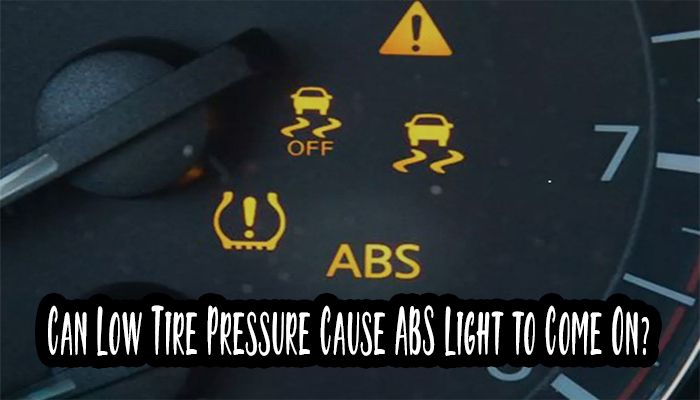
If one tire has low pressure, it will rotate at a different speed than the other tires, which can trigger the ABS light.
Here is how low tire pressure can cause the ABS light to come on:
- Low tire pressure changes the effective radius of the tire. This means the tire will make more revolutions per minute (RPM) than the other tires.
- The ABS system detects the difference in RPM between the tires. This can trigger the ABS light because the system interprets the difference in RPM as a sign that the wheel is losing traction.
- The ABS system disables itself. This is because the system is designed to prevent wheel lockup, but if one tire is rotating at a different speed than the other, the system cannot prevent wheel lockup.
If the ABS light comes on because of low tire pressure, it will usually go off once you inflate the tire to the correct pressure.
However, if the ABS light stays on, another problem with the ABS system may need to be addressed by a qualified mechanic.
Here are some tips for preventing low tire pressure from causing the ABS light to come on:
- Check your tire pressure regularly. The recommended tire pressure for your vehicle is usually listed on a sticker inside the driver’s door jamb.
- Use a tire gauge to check your tire pressure. Do not rely on the tire pressure gauge that is built into your gas station’s air pump. These gauges can be inaccurate.
- Inflate your tires to the correct pressure. Do not overinflate or underinflate your tires.
- Be especially careful about tire pressure in the winter. Cold weather can cause tire pressure to drop.
Impact of Low Tire Pressure on ABS Sensors
Let’s zoom in on the intricate dance between tire pressure and ABS sensor performance:
- Sensor Calibration: ABS sensors are meticulously calibrated to function optimally within specific tire pressure ranges. Deviating from these ranges can throw off their precision.
- Vibrations and Misreadings: Under-inflated tires may cause vibrations that the sensors interpret as wheel locks, prompting the ABS system to kick in unnecessarily.
Conclusion
Have you ever faced the ABS light dilemma? Whether you’ve conquered it with your tire expertise or are still navigating the solution, share your experiences and ingenious solutions!
Let’s build a community of tire-savvy individuals helping each other navigate the roads with confidence.
Glossary
- ABS: Anti-lock Braking System, a safety system preventing wheel lock during braking.
- Sensor: A device that detects environmental changes and sends signals to the ABS system.
- Calibration: Adjustment of ABS sensors to ensure accurate readings.
